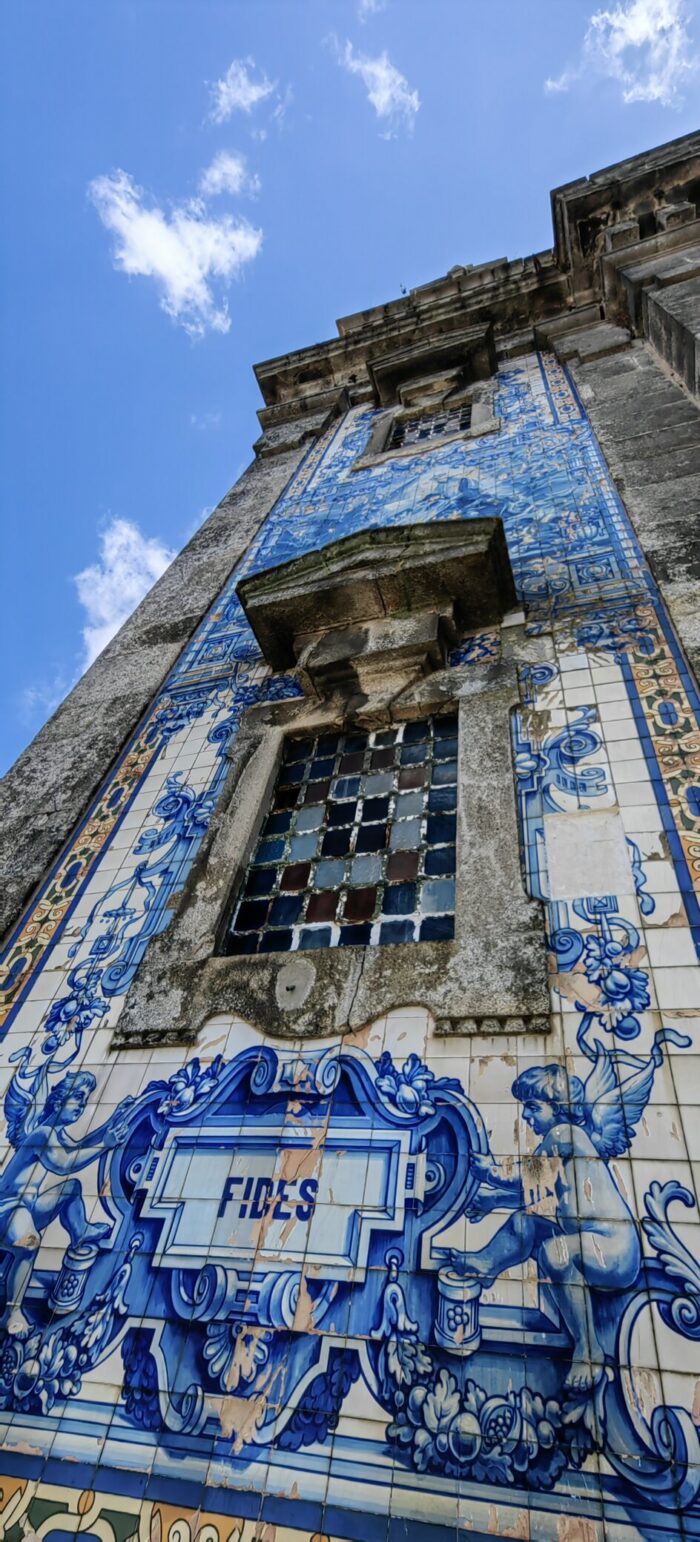I’ll never forget how struck I was with the Icelandic lifestyle. My partner and I spent almost a month there last summer backpacking, hiking, camping, and exploring every inch of the country (minus the tip of the West Fjords). Upon landing, it becomes immediately impossible to ignore that Iceland prioritizes well-being. The airport is filled with natural light, it’s clean, it’s made from Icelandic wood (a lot of it beautifully exposed), and the only “imperfections” were stickers on the ridiculously clean bathroom stalls that said, “Go Vegan” and “Meat is Murder.” Already, it was very clear to us that this country valued quality of life above all else. The rest of our travels there confirmed that. We saw people living off the land, appreciating nature, and making lifestyle decisions that would benefit their world. Ideas like equality, gay rights, veganism, and zero waste aren’t controversial there: they’re accepted among people of all ages because practically speaking, they will improve the quality of life for everyone. The country’s laws speak to that, and making Reykjavik the most sustainable city in the world. Environmentalism, equality, and progress aren’t just practiced by the people. It’s woven into the fabric of their very government. Not once did we see plastic cutlery. Even in gas stations, if you wanted to eat, you had to eat in and use the silverware. This isn’t seen as an inconvenience, and on top of that, it forces you to slow down (something Americans rarely do).
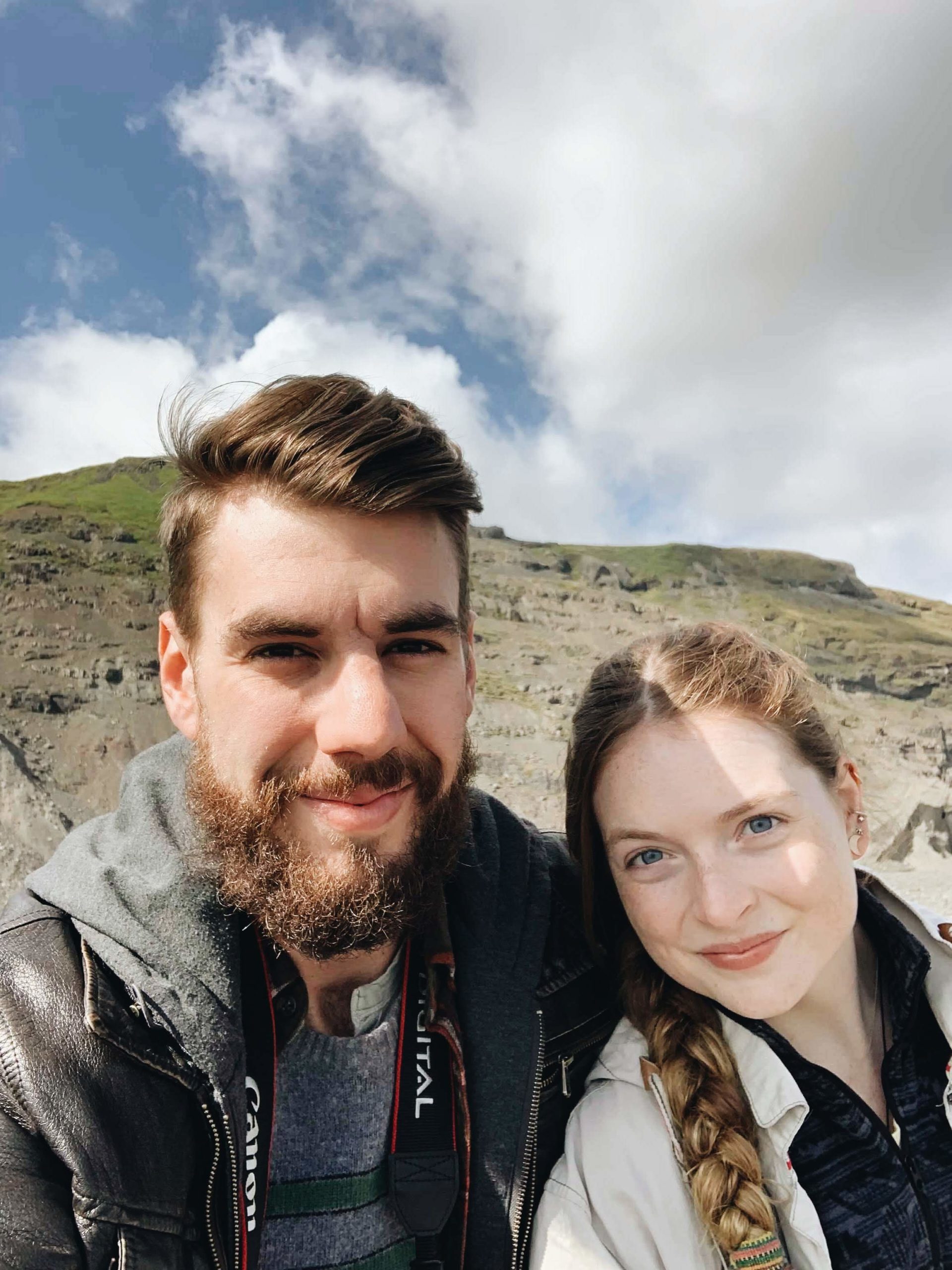
We’ve never been to a country more filled with happy people.
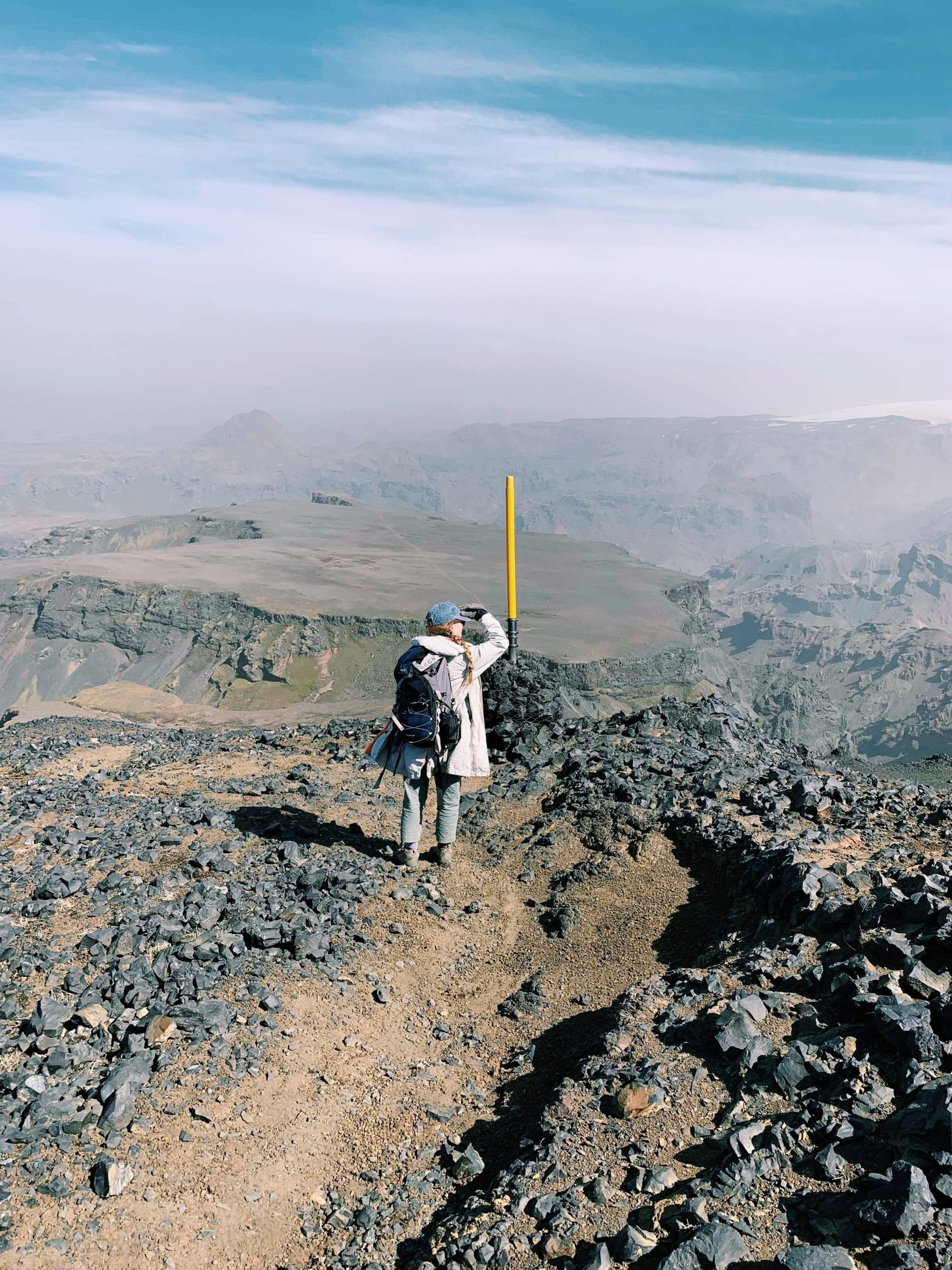
The wild in Iceland is alive and well, and I saw that on every hike or glacial climb I did while there.
Is Iceland perfect? No, because people are imperfect. But they’re trying, which is more than can be said for most countries. Icelanders hold funerals for melted glaciers; and churches issue formal apologies to the gay community. Icelanders also hold celebrations that honor the Earth. Most people don’t understand that about Iceland. They see it now as merely a place to get killer Instagram photos in the Blue Lagoon. Truth be told, most tourists only explore the very south and never see the rest of the country or roam outside the well-known tourist spots. They’ve simplified the entire country, and miss out on the fact that the lifestyles practiced there could really enrich their lives. If you ever find yourself in Iceland (or anywhere new to you), don’t make that mistake. Understand that this country works to improve the quality of life of its people, and it’s working. Take note.
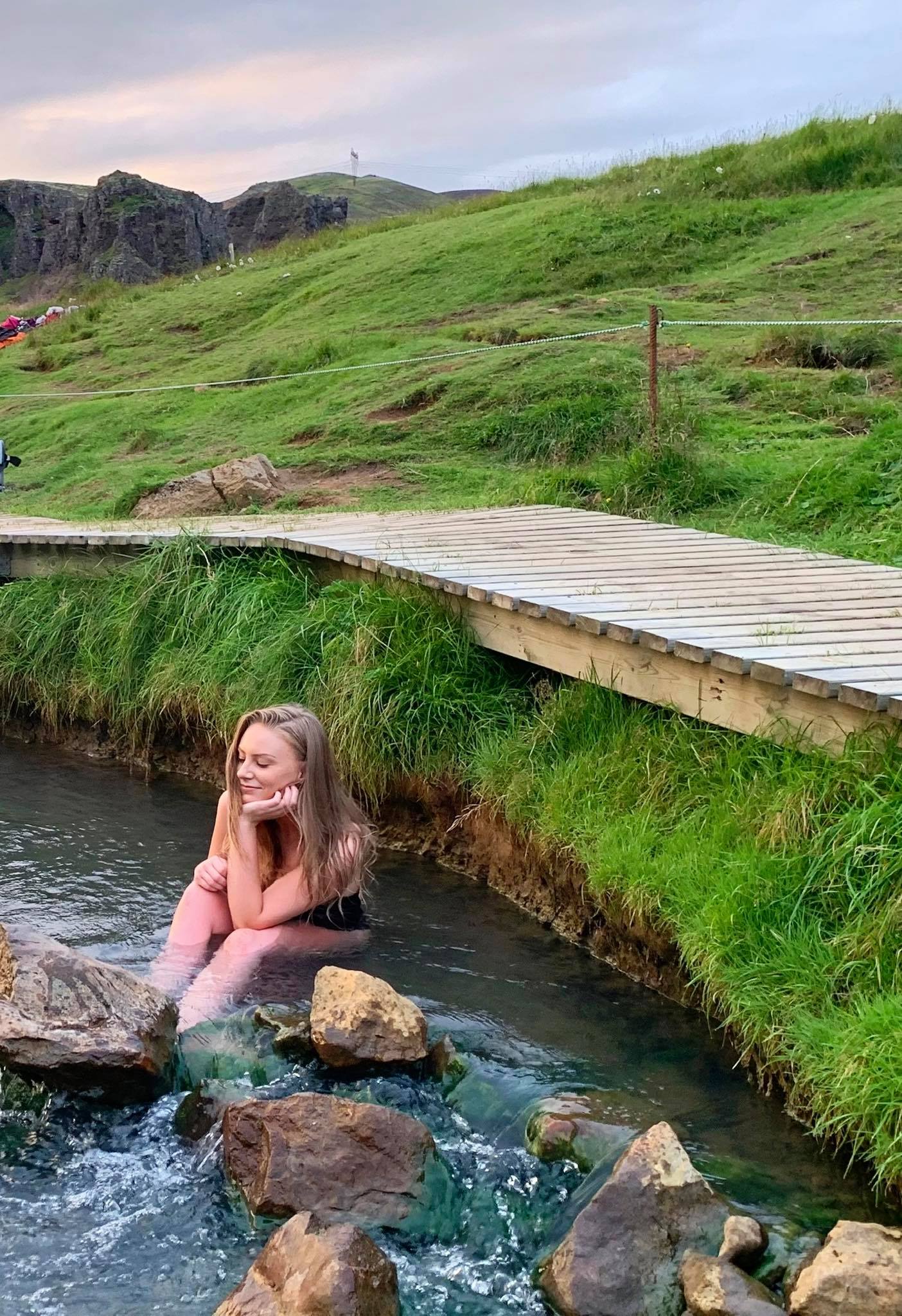
Hrafna, famous Icelandic YouTuber, is proud of the dominant slow living lifestyle in her country.
So what about the Icelandic lifestyle makes it so entrenched in these beautiful concepts and values? For one thing, Icelanders practice slow living and they bond with the natural world. Their days are really long in the summer and nonexistent in the cold months, so they don’t waste them. Most Icelanders love to be outside and in nature, and it’s rare to find someone there who isn’t really connected to the Earth. Hrafna, a famous Icelandic YouTuber, explained to me that people there don’t see activities like hiking or being outside as being niche. It’s “common sense” that nature is for people, because we belong there. That sentiment is even laced into their language. Hrafna translated Solarsamviskubit for me, and it really summed up this bond Icelanders have for their Earth. The word means to feel guilty when you look out the window and see that it’s sunny, and realize that you’re indoors, not enjoying the light and nature. If you ever wonder why Icelanders are so fond of the planet, there’s a big part of the answer right there. Combined with the fact that they have the cleanest water in the world (we were drinking straight out of streams when we were there—it’s that clean!), lots of protected land, and it’s tricky to move there (therefore discouraging overpopulation), the land is wild and free. It’s a sanctuary for them. People slow down and enjoy it by gardening, exploring, and taking things at their own pace so they can take in things like the colorful descent of the midnight sun after 2 a.m., the sparkle of the icebergs, and the feel of the cool wind in the north.
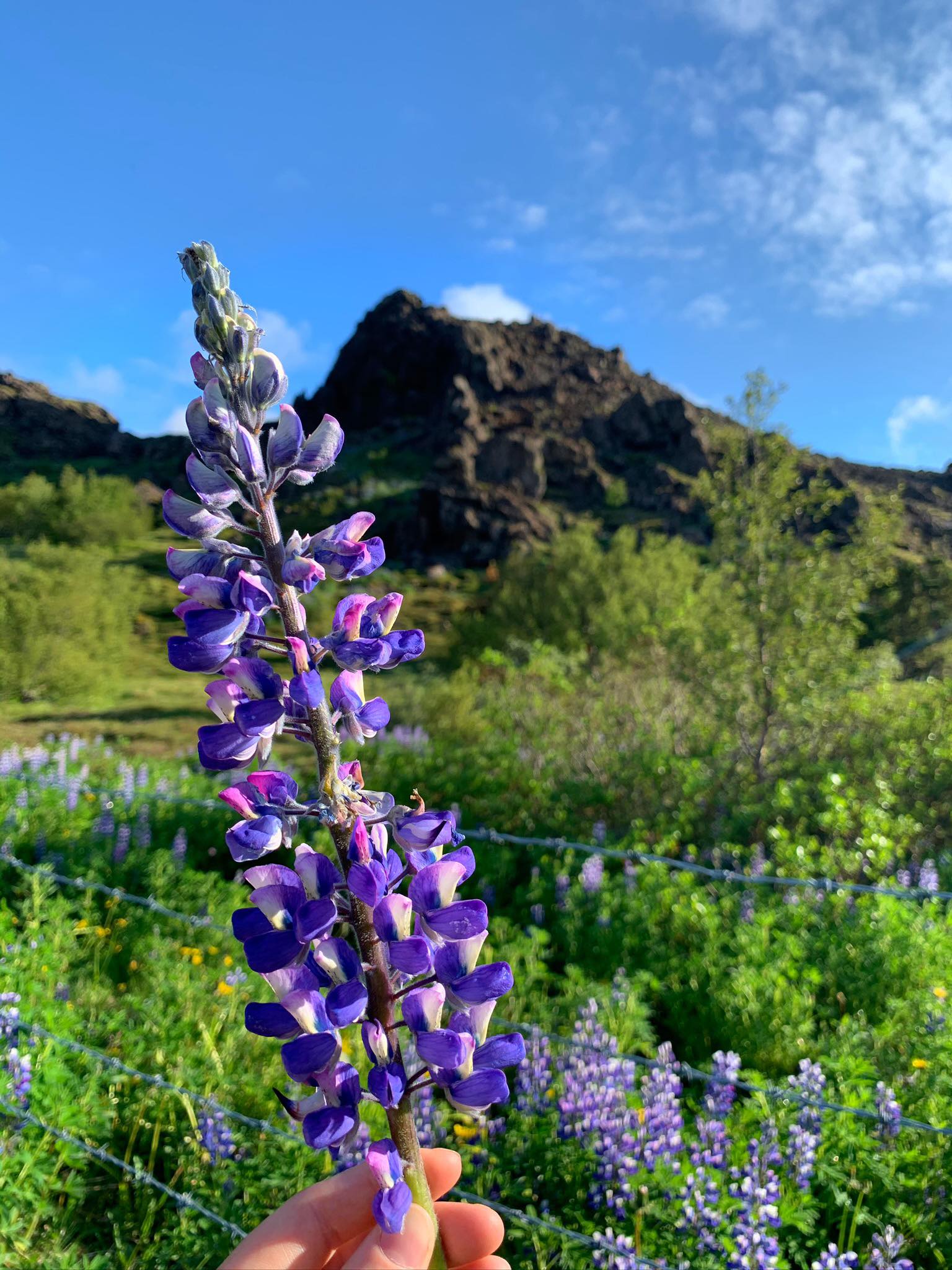
Hrafna loves the natural wonders of her country, including the wildflowers.
Icelanders consistently rank as being in the top 5 on the World Happiness Report , and people there consistently live longer lives thanks to that feeling of fulfillment. Being so in tune with the land has its benefits. Even in the darker months, Icelanders still are joyful and connected to the natural world. Hrafna talks about this a lot in her videos (which are great to educate yourself with if you are wanting to learn more about Icelandic culture), but not only are Icelanders used to the winter cycles, but they embrace it. They hold celebrations, enjoy the snow, and also revel in “being cozy” and “staying in, lighting candles, and watching a film.” They take in every phase of life, and they embrace it fully. The winter makes them appreciate the summer, and the summer does the same for winter. There is a beautiful balance in the way Icelanders view the seasons and life in general.
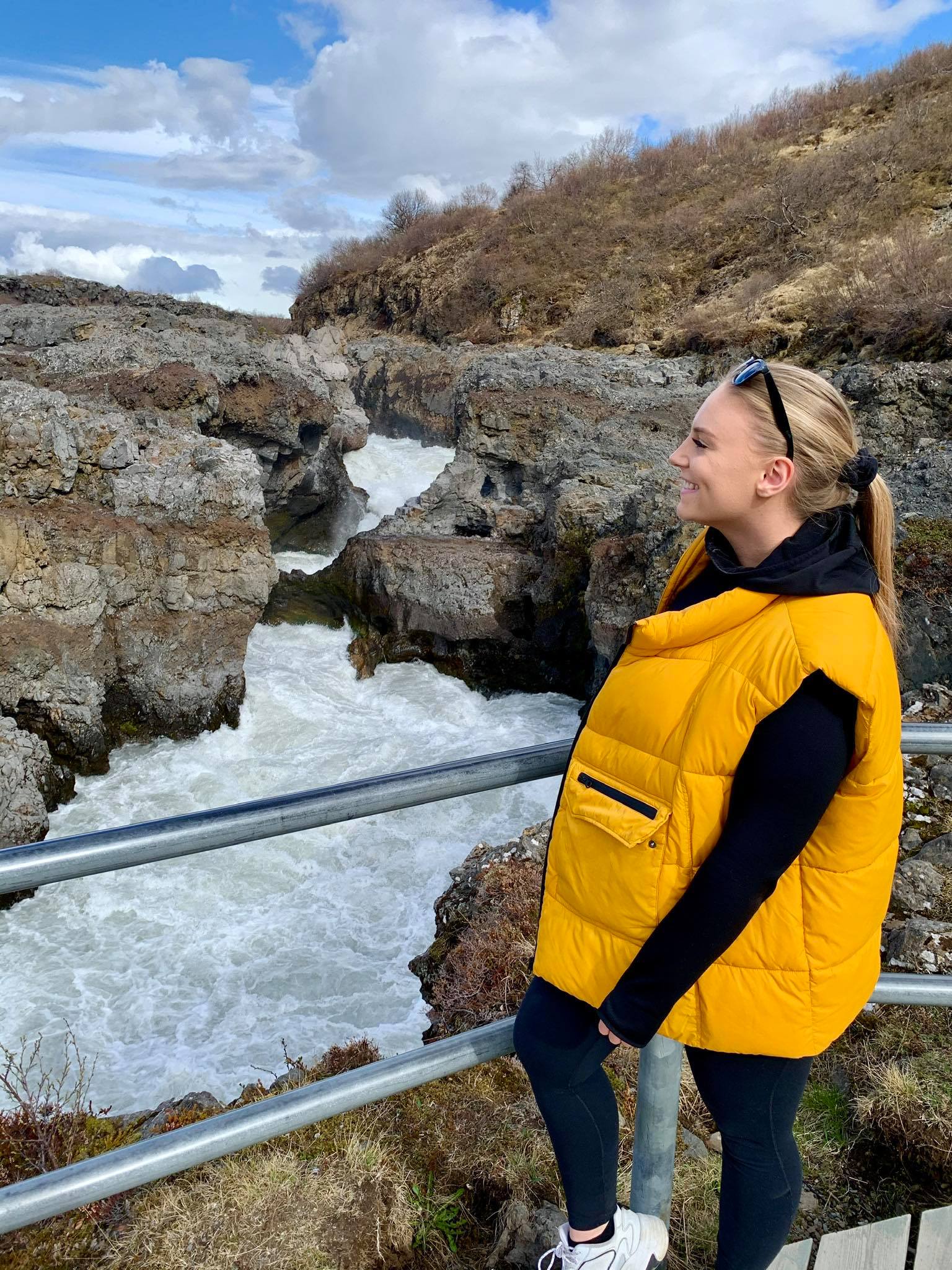
Hrafna loves slowing down to look at waterfalls and enjoy nature- as do most Icelanders.
The Icelandic way of living is one of slowing down, connecting with the natural cycles of the Earth, and community. Every moment is appreciated and even something like going for an ice cream cone is something to be savored (there’s even a word for it—ísbíltúr means “ice cream road trip” in Icelandic). It’s a small country, and those who live there take great pride in that. There is a lot of support for one another, and when someone succeeds, “the whole country cheers them on.” On top of that, there is also a huge encouragement of independence. For example, there’s no pressure to immediately get married, even when you’re engaged, and Hrafna explained to me that it’s even the norm to be engaged for 8-10 years. It’s not about labels or status. If you get married, it’s for love, so there’s no rush. You want to spend your life with that person, so waiting does no harm. This is a country of free thinkers who value both community and self.
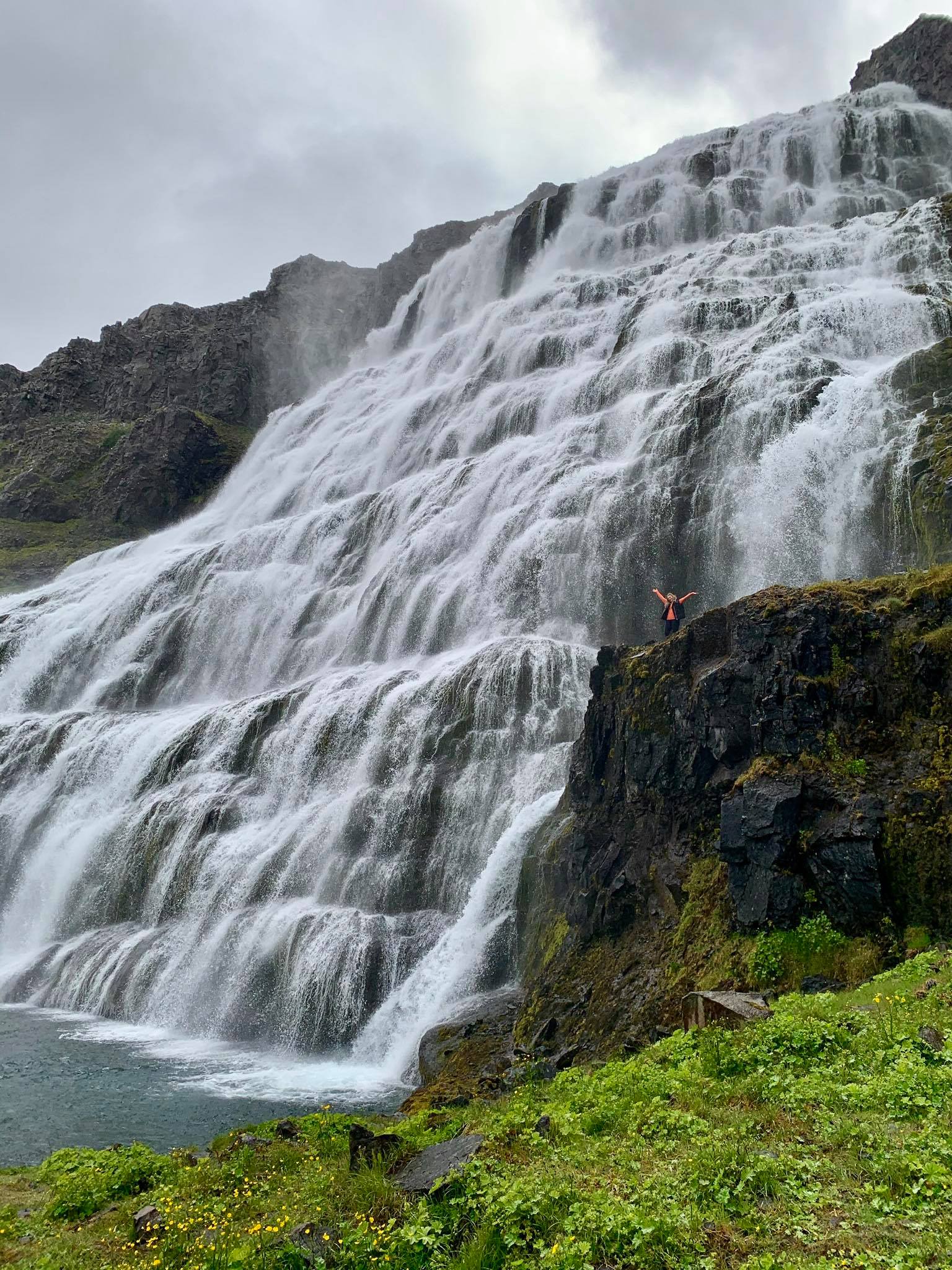
Hrafna feels empowered in her Icelandic lifestyle.
Imagine a life like this; a life of having more time, being in tune with yourself and the land, and knowing your worth. That’s Icelandic, through and through, but you don’t have to live there in order to practice it. Yes, it helps to live in a place where the government espouses those values, but you can incorporate these philosophies and values into your own life no matter where you are. You can make a goal to never miss a sunset, even if it means stepping out of work for a second. You could aim to work remotely or with a company that recognizes the fact that you have a life that doesn’t revolve around them. You could take more walks, celebrate season changes, go earthing, and eat more nourishing meals. Embrace slow living, hygge, and anything that centers you. Understand that life isn’t about making as much money as possible, being as noteworthy as possible, or getting as much done as possible. At least it isn’t if you want to live a life centered around well-being—an Icelandic life.
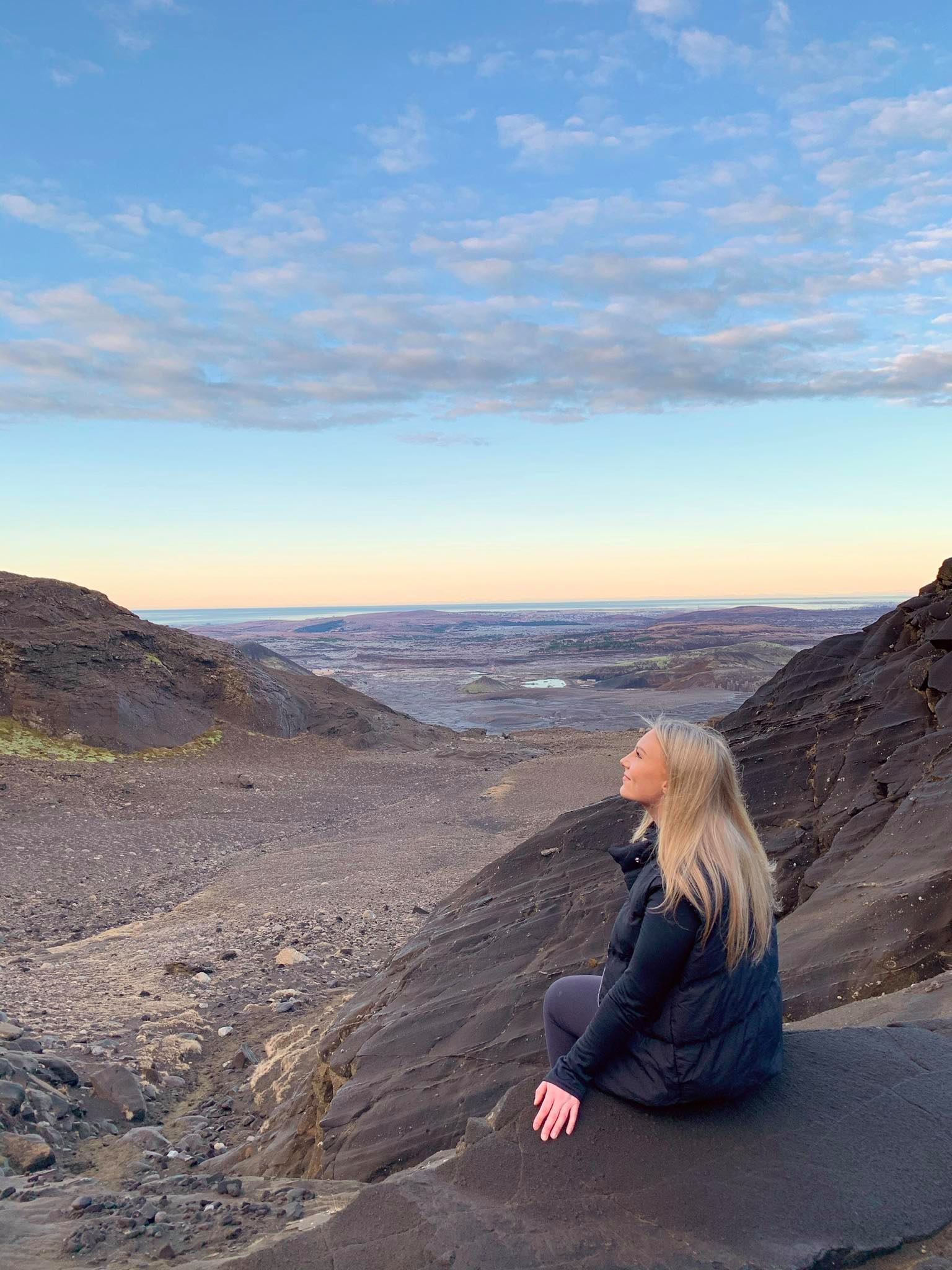
I asked Hrafna a question at the end of our long chat: “Do you feel like you can have the life that you dream of?” She said, “Absolutely! Iceland is so special and so are the lives lived here. We all recognize that, and that makes me a really happy person. People abroad can have that too if they could incorporate these ideals into their lives. The world would be happier for it.”
Get more like this—Sign up for our daily inspirational newsletter for exclusive content!
__
Photo: (First two) Emily Degn; (all others) Hrafna




